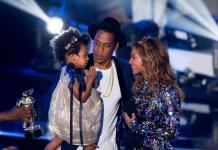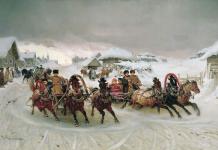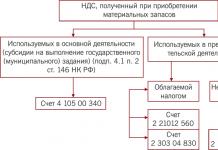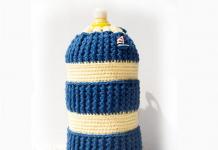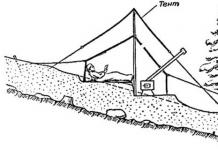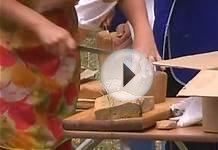This task tests the ability to evaluate speech in terms of compliance with basic morphological norms of the Russian literary language. The most common errors in the formation of the form:
1) comparative and superlative degrees of adjectives;
2) collective numerals;
3) whole and fractional numbers;
4) genitive case of numerals;
5) nominative and genitive plural of nouns;
6) indirect cases of personal pronouns of the 3rd person after a preposition, etc.
So let's revisit the theory.
|
Error type |
Rules and correct options |
|
1. Formation of forms of various degrees of comparison of adjectives |
The most intelligent less prettier, the most most talented and so on. |
|
|
This table shows the correct formation of the degrees of comparison of the adjective light . If the adjective is in a compound comparative or superlative degree, then it remains in its initial form (except for cases with the word “all” (smarter, prettier, more talented, etc.). Correct option: most smart; less Beautiful; most talented. Note! It is forbidden to mix simple and compound forms of degrees of comparison! |
||
2. Formation of forms of numerals |
||
|
a) difficult |
No six hundred rubles, about four hundred books, etc. |
When declining, complex numbers change both parts (four hundred(R.p.), four hundred(D.p.), four hundred(T.p.), oh four hundred(P.p.). Correct option: no six hundredrubles, about four hundred books |
|
b) composite |
three thousand five stami eight tenths of the family |
When declining compound numbers, it changes every word (three thousand seven hundred fifty two(D.p.), five thousand eight hundred fifty six(T.p)). Correct option: three thousand five stami eight ten seven |
|
c) fractional |
four fifth |
When declining fractional numbers change all words, while the numerator changes as the corresponding integer, and the denominator as a plural adjective (three(what?) seventh ; five(what?) ninth ). Correct option: four fifth |
|
d) numerals one and a half and one and a half hundred |
One and a half glasses, one and a half hundred friends |
Numerals one and a half (female - one and a half) and a hundred and fifty in Im. and Win.p. have the indicated form, and in all other cases - the form one and a half and one and a half (one and a half cups(I.p.), one and a half cups(R.p.), one and a half hundred centners(I.p.), one and a half hundred centners(T.p.)). Correct option: One and a half glasses, one and a half friends |
|
e) numerals forty, ninety, one hundred |
ninety notebooks; about forty events; to stams books |
Numerals forty, ninety, one hundred when declining, they have only two forms: Im.p. and Win.p. - forty, ninety, one hundred, other cases - forty, ninety, one hundred. Correct option: ninety notebooks; about forty events: to a hundred books |
|
f) collective numbers two, three, four, five, six, seven |
Two girls, seven women, three cats |
These numerals are used only: a) with nouns denoting persons masculine and common gender: three brothers, two orphans; b) with nouns that have the form only plural: three days, two scissors; c) with nouns guys, people, children, face (in the meaning of "man"): five suspicious persons, three guys; d) with personal pronouns we you they: they are three, you are five; e) with the names of paired items: two socks, mittens, skis; f) with the names of baby animals: two rabbits, four hedgehogs. |
|
g) collective numerals both-both |
TO both old ladies both boys |
Note! Collective numbers can't match with nouns denoting females and adult animals! Correct option: Two girls, seven women, three cats numeral both (both, both, both) used only with masculine nouns (both sons, on both houses), and the numeral both (both, both, both)- only with nouns female (both friends, on both tracks). Correct option: To both old ladies, both boys |
|
H) Formation of verb forms |
Lay in the bag, go hurry up, i win his |
Remember: a) forms of the imperative mood of verbs: b) verb put used only without prefix; c) root verbs -lie-- only with a prefix (put, lay out, etc.) d) the forms of the 1st person singular of the present (future simple) tense of verbs are not used to win, to convince, to find oneself, to be weird etc. When necessary, expressions are used: I can find myself, I can convince and so on. Correct option: Polozki in the bag, go hurry up I can win his |
4) Formation of forms of pronouns |
in the middle his, inside them, closer her, theirs fate |
a) to personal pronouns of the 3rd person ( he, she, it, they) the initial H is added, if they come after simple prepositions without, in, for, before, for, from, to, with, at and others: without Him, with Her or after adverbial prepositions around, in front of, near, past, opposite, about, in the middle, after, behind etc., ruling the genitive case: around Them, behind Him; b) after adverbial prepositions contrary to, according to, contrary to, towards, respectively, like, inside, etc. initial H is not added: in spite of him, towards her; c) after forms of the comparative degree of adjectives and adverbs of the pronoun 3rd person used without initial H: older than him, better than her. Note! Possessive pronoun their has only this form! THEIR - this is a mistake! Correct option: in the middle him inside their, closer her, them fate |
5) Formation of noun forms |
||
|
Variants of case endings |
||
|
a) Exist. m.r. 2nd sk. |
Two boots, some Romanians, platoon soldiers, five amps , beautiful towels |
Ex. m.r. 2nd sk. with a basis on a hard consonant in Rod.p. plural have null ending, if they mean: 1) pair items: mittens - mittens (But: socks - socks); 2) nationality (if the stem ends with H or R): Armenians- Armenians, Bulgarians - Bulgarians(but: Kalmyks, Kirghiz, Tajiks, Tungus, Uzbeks, Yakuts); 3) military units: (squad) partisan, hussar, soldier ( But: miners, sappers); 4) some units of measurement: (some) amp, watt, volt, grain(but: grams, kilograms); 5) as well as nouns f.r. on -nya and on - tse: tower - towers, fable - fables; saucers, mirror, blankets, towels ( But: swamps, hooves, laces, logs). Correct option: Two boot, some Romanian, platoon soldier, five ampere, beautiful towels |
|
Young engineerA |
Ending -s(s) used: a) in borrowed nouns on -er(-er): drivers; b) from borrowed neosouls. and shower. noun on -tor, -sor: reducers, designers, inspectors (but: directors, professors). Correct option: Young engineers |
|
|
Piece cheese |
Ending -y (-y) used: a) in real entities. when referring to quantity: a glass of tea, a spoonful of sugar ( But: tea plantations, sugar reserves); b) in abstract and collective entities. combined with words many, few: a lot of noise, few people. Correct option: Piece cheese |
|
|
Five orange, delicious apples |
Nouns denoting the name of vegetables and fruits, mainly in the form R.p., pl. have an ending -ov: lemons, eggplant But: apples) Correct option: Five oranges, delicious apples |
|
|
Nouns on -e in the form R.p., pl. have an ending -ii: drug - drugs uy, outback - outback uy ( But: dresses, mouths, lower reaches, upper reaches) |
||
Let's analyze the task
1. Specify an example with an error in the formation of the word form:
1) in thirty notebooks
2) the brightest light
3) they want
4) kind people
In the first example - a numeral and a noun. There is no violation of agreement: both words are used in the prepositional case correctly. In the second case - the comparative degree of an adjective and a noun. Both words are coordinated in the phrase (active case). The form of the comparative degree is created correctly: from the adjective "bright" with the help of the suffix -aysh-. The third answer is an unproductive verb with alternation. There's an error here! Correct form - want. In the last example, an adjective and a noun in the genitive plural form. The form of the noun is correct. The phrase agreed is plural, genitive case. The correct answer is 3.
Morphological norms.
Task A3 (morphological norms of the Russian language) tests your ability to correctly choose the form of the word of the following parts of speech:
noun;
adjective and adverb;
numeral name;
pronouns;
Details about the rest of the parts of speech can be found in the article morphological analysis of the word.
Noun.
Rule.
1) Prepositional case of the singular (endings - y or -e):
Y is used in case of adverbial meaning: in the closet, in the garden.
E with an objective meaning: to understand the garden.
2) Nominative plural (endings -а or -ы).
Distinguish!
3) The use of gender forms
Distinguish!
Adjective and adverb (degrees of comparison).
| degree | comparative( denotes a sign that manifests itself to a greater or lesser extent) | superlative( denotes a feature that manifests itself in any subject to the greatest extent) |
| simple form: | suffixes: -E, -EE, -EY, -SHE | suffixes –AYSH, -EYSH, sometimes: prefix NAI- + suffixes –AYSH, -EYSH The adverb has no superlative degree! |
| compound form: | MORE, LESS + adjective (adverb) in the initial form | 1) simple comparative degree + ALL (TOTAL) 2) MOST, MOST + adjective in the initial form (adjective only) |
Rule.
DO NOT combine superlative and comparative forms, as well as simple and compound forms of both degrees of comparison!
For example, it is IMPOSSIBLE to be the thinnest, the worst, the least beautiful.
IT IS POSSIBLE the thinnest or thinnest, thinner or worse, least beautiful or more beautiful.
Remember!
brisk - brisk and brisk,
flexible - more flexible
smooth - smoother
deep - deeper
bitter (experience) - bitterer,
bitter (tastes) - bitter,
wild - wilder or wilder,
dexterous - more dexterous or more dexterous,
small - smaller
narrow - already
biting - biting
Numeral.
declension of numbers
Distinguish!
| Cardinal numbers
(How many?) |
ordinals
(Which number?) |
| all words decline: R.p. (no) seven hundred and eighty two etc. (what?) seven hundred and eighty-two
I., V. -one and a halfA(m., cf.),one and a halfs(female) R., D., T., P. -floorattorusA
I., V. -zeroending, R., D., T., P. -ending-A
both parts end the same heelsAndtenAnd, fiveYutenYu
both parts are inclined, in case of difficulty, substitute instead of the word honeycomb - note I., V. five notes -five hundred. R. five notes -heelsAndhundred D. five notes -heelsAndstam T. five notes -fiveYustami P. about five notes - aboutheelsAndstOh |
only the last word declines up to one thousand six hundred and eighty-six in two thousand five hundred and ninety-seven When specifying the date after the ordinal number, the name of the month is put in the genitive case: by the fifth of January before the first of September |
combination of collective nouns with nouns 
Pronoun.
| Error | Example | Corrected version |
| cases of incorrect use of the personal pronoun of the 3rd person in indirect cases with a preposition (without the initial n) | I love her | I love her |
| Trap! After some prepositions, pronouns do not have the initial n-: thanks to him, including him, outside him, contrary to him, after him, towards him, in spite of him, like him, like him, in the middle of him (but: in the middle of him!), through him, according to him | ||
| combinations with her, for her, from her have an archaic character | what can be expected of her | what can be expected of her |
| erroneous formation of the genitive form of the interrogative (relative) pronoun how much | Her attitude towards the players is outrageous. Their goat butts | Her attitude towards the players is outrageous. Their goat butts |
| unjustified omission of the reflexive pronoun self | She represents nothing! Let me move on to the next question. |
She is nothing! Let me move on to the next question. |
| pronoun as a superfluous word | This leader, she herself is the weakest link | She, this leader, is the weakest link |
| violation of the connection between the subject and the predicate and violation of agreement with the replaced word. With the words WHO and WHAT - the predicate is put only in the singular! |
Those who oppose me will have problems Anyone who doesn't know the answers should leave the game |
Those who oppose me will have problems Anyone who doesn't know the answers should leave the game |
| ambiguity in the use of a pronoun | Arkady and Boris argued, and he (who exactly?) Was not surprised why I did not support him | |
Verb.
Rule.
Verbs CONVINCE, CONQUER, FEEL, FIND OUT, PIERCE, HANG, DARE, BE FUCKING, BLOW, EAR, RETAKE, GRATE, BUCK, BUZY, RUST and some others, the forms of the 1st person singular are not used: i I swear, I swear, I swear.
 Action algorithm.
Action algorithm.
1) Determine the forms of which part of speech are presented in the answer options.
2) Identify the main features of this form (identify the gender, number, case, person, etc.)
3) Think about where the errors might be.
Parsing the task.
Give an example with an error in the formation of the word form.
1) in the year one thousand eight hundred
2) a few hot pancakes
3) lie down on the floor
4) walk towards them
Option number 1.
In the year eighteen hundred- we are interested in the ordinal number in the form of the prepositional case. We recall: in an ordinal number, only the last part should change during declension, that is thousand stays the same, only changes eight hundred. This means that the form is formed correctly.
Option number 2.
Several hot pancakes. Paying attention to the noun fritters, which is in the genitive plural form. It is necessary to remember the rules for using variants of endings: -ov, zero, -ey. We put in the initial form - fritter, is a feminine noun with an unstressed ending -я. Thus, the ending in R.p. pl. hours must be zero: fritters formed correctly.
There are many morphological forms in Russian inflected words. Fortunately, most of them are acquired by children in early childhood and do not cause problems in preparing for the exam. But there are forms in the formation and use of which both children and adults make mistakes. Below is a list of such morphological forms.
Error forms.Remember the list examples.
Noun
Plural formation:
Words on Y - I:
engineers, designers, officers, lecturers, trainers, accountants, instructors, editors, locksmiths, drivers;
vectors, winds, reprimands, jumpers, sweaters, contracts, containers, players, policies, spotlights, warehouses;
ages, choices, ports, handwriting, creams, cakes
Words starting with A - Z:
director, doctor, inspector, professor, cook, watchman, paramedic, tenor, coachman;
districts, warrants, bills, boats, vacations, heaps, bells, bodies, domes, districts, passports, cellars, varieties, farms, poplars, stacks, stamps, anchors
Formation of genitive plural forms:
Form on OB - EB:
several kilograms (kilogram), grams (grams), hectares, carats, tomatoes, tomatoes, oranges, apricots, pineapples, bananas, pomegranates, lemons, tangerines, eggplants, stockings, socks, shoulder straps, sneakers (sneakers), rails, nerves;
many dresses, upstreams, roots, tatters, downstreams, apprentices, flakes, mouths
Null-terminated form:
a pair of towels, stockings, bloomers, shorts, boots, shoes, boots, slippers, slippers, galoshes, shoe covers, boots, boots, apples, melons, plums;
detachment of soldiers, hussars, dragoons, grenadier (grenadier), cadet, lancer, partisan;
one hundred amperes, watts, volts;
many towers, fables, saucers, splashes, cases, pasta, loops, nannies, cuffs, towels, earrings, gossip, apple trees;
many thoughts, pancakes, seats, pickles, gorges, cookies, dishes, coasts, necklaces, dungeons
The use of nouns of various kinds:
good shampoo, penalty, chimpanzee, cockatoo, wildebeest;
terrible tsetse (fly), fresh ivasi (herring);
old Tbilisi, Sukhumi, beautiful euro;
wide Mississippi, Yangtze, Yellow River;
new subway, scarf, coat
The use of indeclinable proper names:
Nikita Struve publishing house, Dumas reading, Shevchenko's poetry
Adjective
A mixture of simple and compound forms of comparative and superlative degrees:
Wrong: later, higher, lower; less clear, more scary; the most beautiful (colloquial).
Right: later - later; higher lower; less clear, less scary; the prettiest or prettiest.
Comparative degree education:
Wrong: prettier, better, worse (wrong choice of inflection model, vernacular).
Right: prettier, better, worse.
Numeral
Inflection of numerals traditionally difficult teaching material.
1. Formation and change of forms of compound numbers:
in the year one thousand and five, two sevenths, by three fifths, in two thousand and eleven,
eighty (eighty), eight hundred (eight hundred), five hundred, three thousand six hundred and fifty seven
2. Declension of complex and compound numbers:
two hundred rubles, five hundred rubles, four hundred rubles, about five hundred kilometers, three hundred pages, no six hundred rubles, about five hundred books
Advice:
words: forty, ninety, one hundred.
I.p. forty, ninety, one hundred (rubles)
R.p. forty, ninety, one hundred (rubles)
D.p. forty, ninety, one hundred (rubles)
V.p. forty, ninety, one hundred (rubles)
etc. forty, ninety, one hundred (in rubles)
P.p. (o) forty, ninety, one hundred (rubles)
fifty, sixty, seventy, eighty. When declining, both parts change in them:
I.p. fifty, sixty, seventy, eighty (rubles)
R.p. fifty, sixty, seventy, eighty (rubles)
D.p. fifty, sixty, seventy, eighty (rubles)
V.p. fifty, sixty, seventy, eighty (rubles)
etc. fifty, sixty, seventy, eighty (rubles)
P.p. (o) fifty, sixty, seventy, eighty (rubles)
Pay attention to the declension of numbers: five hundred, six hundred, seven hundred, eight hundred, nine hundred. When declining, both parts change in them:
I.p. five hundred, six hundred, seven hundred, eight hundred, nine hundred (rubles)
R.p. five hundred, six hundred, seven hundred, eight hundred, nine hundred (rubles)
D.p. five hundred, six hundred, seven hundred, eight hundred, nine hundred (rubles)
V.p. five hundred, six hundred, seven hundred, eight hundred, nine hundred (rubles)
etc. five hundred, six hundred, seven hundred, eight hundred, nine hundred (rubles)
P.p. (about) five hundred, six hundred, seven hundred, eight hundred, nine hundred (roubles)
Pay attention to the declension of numbers one and a half, one and a half, one and a half hundred, in which errors are often made:
I.p. one and a half (hours), one and a half (minutes), one and a half hundred (rubles)
R.p. one and a half (hours, minutes), one and a half hundred (rubles)
D.p. one and a half (hours, minutes), one and a half hundred (rubles)
V.p. one and a half (hours), one and a half (minutes), one and a half hundred (rubles)
etc. one and a half (hours, minutes), one and a half hundred (rubles)
P.p. (o) one and a half (hours, minutes), one and a half hundred (rubles)
Pay attention to declination compound cardinal numbers: each word changes in them:
I.p. two thousand fourteen (rubles)
R.p. two thousand fourteen (rubles)
D.p. two thousand fourteen (rubles)
V.p. two thousand fourteen (rubles)
etc. two thousand fourteen (rubles)
P.p. (about) two thousand fourteen (rubles)
Pay attention to declination compound ordinal numbers: only the last word is changed in them:
I.p. two thousand fourteenth (year)
R.p. two thousand and fourteen
D.p. two thousand and fourteen
V.p. two thousand fourteenth (year)
etc. two thousand and fourteen
P.p. (c) two thousand and fourteen (year)
3. The use of collective numbers:
two brothers, three puppies, to both brothers, to both girlfriends, two glasses, two sledges, two of us, three, six of them.
Advice:
Since the topic causes a lot of problems, remember the cases when it is correct to use collective numbers, in a list:
1. With nouns denoting males: two brothers, three men, four guys.
2.
With nouns children, people: three children, four people.
3. With nouns denoting baby animals: three puppies, seven kids.
4. With nouns that have only plural form. hours: five days.
5. With nouns denoting paired or compound objects: two points, two skis.
6. With pronouns: two of us, five of them.
4. Use of numerals both, both:
numeral both used only with nouns f.r.: both girls, both parties, both books.
With nouns m. and cf. R. the form is used both: both brothers, both friends, both windows.
Wrong: both paths, to both paths, both stars.
That's right: both paths, to both paths, both stars.
Pronoun
Form formation:
Wrong: was carried away by her, with her; theirs; in the midst of him (her), among them; how many books, how many students.
That's right: he was carried away by her - T.p., she has - R.p.; their; in the middle * of him (her), among * them; how many books, how many students
* In the middle, among- suggestions. If you say: from them, from them, say: among them. After prepositions in personal pronouns he she They letter appears in oblique cases n.
Verb
1. Education of personal forms:
Verbs win, convince, convince, dissuade, find oneself, feel, outshine, dare, vacuum and some others do not have a form of 1 person singular. h.
It is a mistake: I will win, I will run, I will win, I will convince, I will run away, I will convince, I will find myself, I am a miracle, a stranger, a stranger.
Correct: do not use these verbs in the form of 1 l., singular.
Wrong: let's try, ride, climb, burn, bake, protect, guard, rinse, wave, want (the wrong inflection model was used, vernacular).
That's right: let's try, ride, climb, burn, bake, protect, guard, rinse, wave, they want.
2. Formation of return forms:
Wrong: met, wanted, said hello, sorry (colloquial).
That's right: met, wanted, said hello (after vowels not -sya, A -ss), sorry (the use of the reflexive form with this verb is a gross mistake).
3. Formation of imperative mood forms:
Wrong: go, go, go, go, go, ride, ride, wave, disperse, lay down, lay down, lie, lie down, run, climb, buy, lie down (wrong inflection model used, vernacular).
That's right: go (with a prefix), wave, drive around, lay down, buy, lie down.
Advice:
Pay attention to the formation of imperative forms of erroneous verbs, which are often found in KIMs:
Lie down - (you) lie down, (you) lie down
Ride - (you) go, (you) go
Ride - (you) ride, (you) ride
Put - (you) put, (you) put
Put - (you) put, (you) put
Climb - (you) climb, (you) climb
Run - (you) run, (you) run
4. Formation of past tense forms:
Wrong: froze, got stronger, dried out, dried out, got wet, got wet, and others like that.
That's right: frozen, strengthened, dry, dry, dry, wet, wet.
Participle
Educationparticiples:
Wrong: rinsing, waving, wanting (using the wrong inflection model); doing, writing, taking an interest (present participles are not formed from perfective verbs).
That's right: rinsing, waving, wanting; do not try to form present participles from perfective verbs.
gerund
Formation of gerunds:
Wrong: looking in my direction, stacking up, driving (incorrect use of formation models: gerunds with the suffix -я- cannot be formed from the verbs CB).
Correct: looking in my direction or looking in my direction, stacked (exc .: stable combination folded arms), having gone.
Adverb
1. Formation of adverbs:
Wrong: from there, to open inward, I can hardly, we will divide it in half (colloquial).
That's right: from there, break away inside, I can hardly, we will divide it in half.
2. Formation of the comparative degree of adverbs:
Wrong: bad - worse, beautiful - prettier and prettier, good - better and good, hard - harder (colloquial).
Correct: bad - worse, beautiful - more beautiful, good - better, hard - harder
To prepare for the exam, we recommend classes with tutors online at home! All benefits are obvious! Trial lesson for free!
We wish you successful passing of the exam!
reference Information
There are many morphological forms in Russian inflected words. Fortunately, most of them are acquired by children in early childhood and do not cause problems in preparing for the exam. But there are forms in the formation and use of which both children and adults make mistakes. Below is a list of such morphological forms.
Error forms. Remember the list examples.
Noun
Plural formation:
Words on Y - I:
engineers, designers, officers, lecturers, trainers, accountants, instructors, editors, locksmiths, drivers;
vectors, winds, reprimands, jumpers, sweaters, contracts, containers, players, policies, spotlights, warehouses;
ages, choices, ports, handwriting, creams, cakes
Words starting with A - Z:
director, doctor, inspector, professor, cook, watchman, paramedic, tenor, coachman;
districts, warrants, bills, boats, vacations, heaps, bells, bodies, domes, districts, passports, cellars, varieties, farms, poplars, stacks, stamps, anchors
Formation of genitive plural forms:
1.Formation and change of forms of compound numbers:
in the year one thousand and five, two sevenths, by three fifths, in two thousand and eleven,
eighty (eighty), eight hundred (eight hundred), five hundred, three thousand six hundred and fifty seven
2.Declension of complex and compound numbers:
two hundred rubles, five hundred rubles, four hundred rubles, about five hundred kilometers, three hundred pages, no six hundred rubles, about five hundred books
words: forty, ninety, one hundred.
I.p. forty, ninety, one hundred (rubles)
R.p. forty, ninety, one hundred (rubles)
D.p. forty, ninety, one hundred (rubles)
V.p. forty, ninety, one hundred (rubles)
etc. forty, ninety, one hundred (in rubles)
P.p. (o) forty, ninety, one hundred (rubles)
fifty, sixty, seventy, eighty. When declining, both parts change in them:
I.p. fifty, sixty, seventy, eighty (rubles)
R.p. fifty, sixty, seventy, eighty (rubles)
D.p. fifty, sixty, seventy, eighty (rubles)
V.p. fifty, sixty, seventy, eighty (rubles)
etc. fifty, sixty, seventy, eighty (rubles)
P.p. (o) fifty, sixty, seventy, eighty (rubles)
Pay attention to the declension of numbers: five hundred, six hundred, seven hundred, eight hundred, nine hundred. When declining, both parts change in them:
I.p. five hundred, six hundred, seven hundred, eight hundred, nine hundred (rubles)
R.p. five hundred, six hundred, seven hundred, eight hundred, nine hundred (rubles)
D.p. five hundred, six hundred, seven hundred, eight hundred, nine hundred (rubles)
V.p. five hundred, six hundred, seven hundred, eight hundred, nine hundred (rubles)
etc. five hundred, six hundred, seven hundred, eight hundred, nine hundred (rubles)
P.p. (about) five hundred, six hundred, seven hundred, eight hundred, nine hundred (roubles)
Pay attention to the declension of numbers one and a half, one and a half, one and a half hundred, in which errors are often made:
I.p. one and a half (hours), one and a half (minutes), one and a half hundred (rubles)
R.p. one and a half (hours, minutes), one and a half hundred (rubles)
D.p. one and a half (hours, minutes), one and a half hundred (rubles)
V.p. one and a half (hours), one and a half (minutes), one and a half hundred (rubles)
etc. one and a half (hours, minutes), one and a half hundred (rubles)
P.p. (o) one and a half (hours, minutes), one and a half hundred (rubles)
Pay attention to declination compound cardinal numbers: each word changes in them:
I.p. two thousand fourteen (rubles)
R.p. two thousand fourteen (rubles)
D.p. two thousand fourteen (rubles)
V.p. two thousand fourteen (rubles)
etc. two thousand fourteen (rubles)
P.p. (about) two thousand fourteen (rubles)
Pay attention to declination compound ordinal numbers: only the last word is changed in them:
I.p. two thousand fourteenth (year)
R.p. two thousand and fourteen
D.p. two thousand and fourteen
V.p. two thousand fourteenth (year)
etc. two thousand and fourteen
P.p. (c) two thousand and fourteen (year)
3. The use of collective nouns:
two brothers, three puppies, to both brothers, to both girlfriends, two glasses, two sledges, two of us, three, six of them.
Since the topic causes a lot of problems, remember the cases when it is correct to use collective numbers, in a list:
1. With nouns denoting males: two brothers, three men, four guys.
2.
With nouns children, people: three children, four people.
3. With nouns denoting baby animals: three puppies, seven kids.
4. With nouns that have only plural form. hours: five days.
5. With nouns denoting paired or compound objects: two points, two skis.
6. With pronouns: two of us, five of them.
4. Use of numerals both, both:
numeral both used only with nouns f.r.: both girls, both sides, both books.
With nouns m. and cf. R. the form is used both: both brothers, both friends, both windows.
Wrong: both paths, to both paths, both stars.
Right: both paths, to both paths, both stars.
Pronoun
Form formation:
Wrong: was carried away by her, with her; theirs; in the midst of him (her), among them; how many books, how many students.
Right: was carried away by her - T.p., she has - R.p.; their; in the middle * of him (her), among * them; how many books, how many students
*In the middle, among- suggestions. If you say: from them, from them, say: among them. After prepositions in personal pronouns he she They letter appears in oblique cases n.
Verb
1. Education of personal forms:
Verbs win, convince, convince, dissuade, find oneself, feel, outshine, dare, vacuum and some others do not have a form of 1 person singular. h.
It is a mistake: I will win, I will run, I will win, I will convince, I will run away, I will convince, I will find myself, I am a miracle, a stranger, a stranger.
Correct: do not use these verbs in the form of 1 l., singular.
Wrong: let's try, ride, climb, burn, bake, protect, guard, rinse, wave, want (the wrong inflection model was used, vernacular).
Right: let's try, ride, climb, burn, bake, save, guard, rinse, wave, want.
2. Formation of return forms:
Wrong: met, wanted, said hello, sorry (colloquial).
Right: met, wanted to say hello(after vowels -sya, A -ss), sorry (the use of the reflexive form with this verb is a gross mistake).
3. Formation of imperative mood forms:
Wrong: go, go, go, go, go, ride, ride, wave, disperse, lay down, lay down, lie, lie down, run, climb, buy, lie down (wrong inflection model used, vernacular).
Right: go (with a prefix), wave, drive away, lay down, buy, lie down.
Pay attention to the formation of imperative forms of erroneous verbs, which are often found in KIMs:
Lie down - (you) lie down, (you) lie down
Ride - (you) go, (you) go
Ride - (you) ride, (you) ride
Put - (you) put, (you) put
Put - (you) put, (you) put
Climb - (you) climb, (you) climb
Run - (you) run, (you) run
4. Formation of past tense forms:
Wrong: froze, got stronger, dried out, dried out, got wet, got wet, and others like that.
Right: frozen, strengthened, withered, dried up, dried up, wet, wet.
Participle
Participle formation:
Wrong: rinsing, waving, wanting (using the wrong inflection model); doing, writing, taking an interest (present participles are not formed from perfective verbs).
Right: rinsing, waving, wanting; do not try to form present participles from perfective verbs.
gerund
Formation of gerunds:
Wrong: looking in my direction, stacking up, driving (incorrect use of formation models: gerunds with the suffix -я- cannot be formed from the verbs CB).
Right: looking in my direction or looking in my direction, folding in a pile(excl.: stable combination folded arms), having gone.
Theory for task 7 from the exam in the Russian language
Morphological norms are the rules for the formation of grammatical forms of words of different parts of speech.
Morphological norms of nouns
1. Indeclinable nouns that denote inanimate objects belong to the neuter gender: coupe, potpourri, bikini.
Exceptions: curlers, riding breeches (plural), blinds, kiwi, whiskey, brandy, coffee (m. and sr.r.), mocha, penalty, euro (m.r.).
2. The gender of nouns denoting persons is determined based on the gender to which they refer: beautiful madam, serious monsieur, cunning frau and so on.
3. The gender of geographical names, names of press organs is determined by the generic word: Capri - island (m.r.), Jungfrau - mountain (m.r.), Monaco - principality (m.r.), Borjomi - city (m.r.); "Times" - newspaper (female).
4. Abbreviations are usually assigned to the genus to which the reference word in them belongs: NATO - alliance (m.r.), CIS - commonwealth (sr.r.); Moscow State University - university (m.r.).
However, the following rules must be kept in mind:
- If an abbreviation ends in a consonant, then it may agree in the masculine gender, despite the fact that the reference word belongs to the feminine or neuter gender. Moreover, in some cases, agreement on the masculine gender is the only possible one. For example, only masculine words university(although the institution), MFA(although the ministry), marriage registry(although the record). In some cases, fluctuations are observed: for example, MKAD- masculine in colloquial speech, feminine in stylistically neutral contexts. In some cases, masculine agreement is not possible: hydroelectric power station, CHP- Only feminine nouns. The generic affiliation of such abbreviations should be consulted in dictionaries.
- The genus of a foreign language abbreviation is determined by the key word in Russian transcription: FIFA(federation) made a decision; CERN(center) conducted research. However, in some cases, the external phonetic appearance of the word can influence the generic affiliation. For example, the abbreviation NATO is used as a masculine noun (as a result of the influence of a combination with the words alliance, bloc, agreement), feminine (according to the key word organization) and neuter (according to phonetic appearance, compare with other words in -O: coat, subway, cinema). Experiencing fluctuations in gender abbreviation UNESCO(the phonetic appearance suggests the neuter gender, and the reference word organization- female).
1) monosyllabic nouns: side - sides, forest - forests, eye - eyes, house - houses, eye - eyes, century - centuries, silk - silk, food - feed, board - sides etc.;
2) two-syllable nouns, in which, in the singular form of the nominative case, the stress is on the first syllable: buffer - buffers, coast - coast, pearls - pearls etc.
6. The gender of compound nouns is determined by the word that expresses the broader meaning of the noun: Butterfly Admiral, pay phone, sofa bed.
And if both concepts are equivalent, the gender is determined by the first word: armchair-bed, cafe-restaurant.
7. For the correct formation of the genitive form of the plural of nouns, you should know the following trends: For most masculine nouns, in the initial form ending in a solid consonant ( orange, tomato, fly agaric, computer, sock), the ending -ov is characteristic in the form of the genitive plural: oranges, tomatoes, fly agarics, computers, socks etc. An extensive number of exceptions can be distinguished from this rule, having a zero ending in the form of the genitive plural:
- Names of people by nationality (in words with a base on -p, -n) and by belonging to military units, mainly used in plural forms in a collective meaning: live among Turkmens, Romanians, Turks, Ossetians, Armenians, Georgians, Gypsies, Bulgarian Tatars; see partisans, soldiers, hussars; this also includes the form r. n. pl. h. person.
- Names of paired items: a lot of boots, for the eyes, without shoulder straps, near the stockings, for the sake of an epaulette, from boots.
- Names of measures and units of measurement: 220 volts, 1000 watts, 5 amps, 500 gigabytes. If such names are used outside the “measuring” context (in other words, the genitive form is not countable), then the ending -ov is used: live without extra pounds, not enough gigabytes.
8. Unstressed nouns -я and -е have the ending -й in the form of the genitive plural: minx - minx, wrist - wrists, and on hit -ya and -yo - ending -her: bench - bench, gun - guns. But: spear - spear.
9. In the form of the genitive plural of nouns on -nya with a preceding consonant or letter y, the letter ь at the end is not written: cherry - cherries, bedroom - bedrooms, slaughterhouse - slaughterhouse. Exceptions: young ladies, young ladies, villages, kitchens.
10. Russian surnames on -ov (ev) / -ev, -yn / -in have the ending -ym in the instrumental case of the singular: Nekrasov, Ptitsyn, Nikitin. Foreign surnames ending in -ov and -in end in -om: Darwin, Chaplin.
11. The names of settlements on -ov / -ev, -yn / -in, -ovo / -evo, -yno / -ino have an ending -om in the instrumental case: behind Lgov, near Kiev, above Pushkin, behind Ukleev, near Borodino, behind Golitsyn.
Morphological norms of adjectives
1. It is impossible to combine simple and complex forms of the comparative degree of the adjective into one construction: a better essay / this essay is better (not this essay is better)
2. You can not mix the simple and complex forms of the superlative degree of the adjective: the wisest old man/the wisest old man (not the wisest old man)
Morphological norms of pronouns
1. The mistake is the formation of the form of the possessive pronoun theirs instead of their: their son.
2. After the prepositions of personal pronouns he, she, they, a letter appears in oblique cases n: to him, from her.
Morphological norms of nouns
1. When declensing compound ordinal numbers, their last part changes, which, when declensed, takes on forms that coincide with the form of full adjectives: first, first, first etc. The rest of the compound ordinal noun remains unchanged for all types of declensions, and any changes to it are considered a morphological error: in two thousand two.
2. Each part and each word that makes up a compound and complex quantitative numeral is declined separately: saw twenty-four classmates.
3. Cases when it is correct to use collective numbers:
- with nouns denoting males: two brothers, three men, four guys.
- with nouns children, people: two children, four people.
- with nouns denoting baby animals: three puppies, seven kids.
- with nouns that have only the plural form. hours: five days.
- with nouns denoting paired or compound objects: two goggles, two skis.
- with pronouns: two of us, five of them.
4. Numerals both used only with nouns f.r.: both girls, both books. With nouns m. and cf. R. the form is used both: both brothers, both elephants.
Morphological norms of verbs
1. For verbs win, convince, convince, dissuade, find oneself, feel, outshine, dare, vacuum and some others do not have a form of 1 person singular. h.
2. Formation of return forms: met, wanted to say hello(after vowels -s is used), Sorry(no return form).
3. Formation of imperative mood forms: ride, wave, drive away, lay down, buy, lie down.
4. Formation of past tense forms: hardened, dry, wet(Not hardened, dried out, wet).
Morphological norms of participles
1. Formation of participles: rinsing, waving, wanting(Not rinsing, waving, wanting);
2. Present participles are not formed from perfective verbs.
Morphological norms of gerunds
1. Perfect participles are formed from the stem of the infinitive with the help of a suffix -V: spill - spill, save - save, thin out - thin out.
There are perfective verbs from which gerunds can be formed using the suffix -and I or -shi, -lice: go in - go in, look - looking, lean - leaning.
2. Imperfect gerunds are formed from the stem of the infinitive with the help of suffixes -and I: think - thinking, walk - walking, fly - flying.
Morphological norms of adverbs
1. Formation of adverbs: from there, come off, inside, I can hardly, we will divide in half.
2. Formation of the comparative degree of adverbs: bad - worse, beautiful - more beautiful, good - better, hard - harder.




